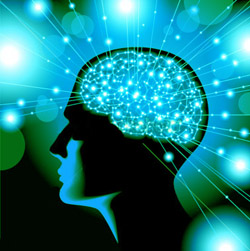The Advantages of GPC Therapy
Stroke Recovery : GPC is documented in accelerating the recovery of focal neurological deficits including space time orientation, improved degree of consciousness, language, motor capacity, improved general wellbeing.
Alzheimer’s and Age Related Dementia: GPC improves cognitive function, such as orientation and language improved memory and attention, improvements in behavior and activities of daily living.
Vascular Dementia: GPC improves cognitive function, memory and attention, mood, reduced disorientation, irritability, emotional liability, and indifference to surrounding, reduced fatigue and dizziness.
Cognitive Function in Young and Middle-Aged People: GPC improves mental performance, word cell, working memory capacity. Most other agents have not been successful in improving this group of patients with neurological deficits.
Male Fertility: GPC improves sperm mobility and endurance.
Growth Hormone: GPC increases release of growth hormone from the pituitary gland, and higher levels may improve physical endurance in sports.
Liver Health: GPC can boost liver health by increasing lipotrophic choline and aids in the utilization and breakdown of foods and supplements.

